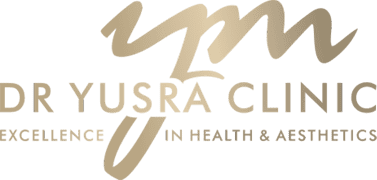Skin Series: Skin treatments through the ages
Posted on 14th June 2021 by Dr Yusra Al-Mukhtar

Teens
The first step of any good skincare regime is understanding your skin. The teenage years are when skin starts to take a turn for the worse for many due to surge of hormones. This can result in excess oil, causing breakouts due to congested pores, blackheads and inflammation on the skin. This coupled with an increase in production of keratin contributes to blocked and enlarged pores and whilst this is normal, it can be upsetting. Starting a simple yet effective skin care routine to gently remove excess oils is important.
A good skincare routine will be to cleanse twice daily, use an alcohol free toner to balance the ph of the skin, moisturiser with a non occlusive light moisturiser and a mineral spf. Exfoliate twice a week to remove dead skin. Don’t ignore acne in your teens, as this can result in long term scarring which can be upsetting for years to come.
Ingredients to look for:
- Salicylic acid which is a chemical peel that can be used daily in face wash and toner to remove excess oils and dissolve blocked pores.
- AHAs to deep clean the skin.
- If dealing with pustules, I would advise benzoyl peroxide to control breakouts and prevent scarring.
20s
Your skin starts to age in your 20s, with collagen production dropping significantly after the age of 25 years old. You start to lose collagen and elastin at a rate of approximately 1.5% every year. This results in the appearance of the first fine lines and wrinkles. I recommend my patients to start incorporating anti-aging skin care products in their mid to late 20s, as a preventative treatment to reduce and delay the appearance of fine lines and wrinkles. Make sure if you are wearing makeup, you choose oil free non comedogenic makeup that won’t block your pores. Ensure you are wearing an spf daily to protect against premature ageing and pigmentation. Sun damage now will start to show in the next decade. Exfoliating with an alpha hydroxy acid like glycolic acid used twice a week will gently remove dead skin cells and improve radiance.
Ingredients to look for:
- I recommend incorporating active ingredients that are collagen stimulating such as antioxidant serum with vitamin C in the morning.
- Lactic and glycolic acids are great to add into your daily morning regime to chemically lift dead skin cells.
- Zinc oxide is a great ingredient in mineral SPFs and is also healing in the skin.
- Retinols should start to be incorporated late twenties to prevent ageing and improve cell turnover.
30s
In our 30s we are truly in the ageing process, which is normal. I believe aging gracefully means taking the best care of what you have I’m not trying to consistently banish every line wrinkle or look 10 years younger, but look the best that you can for your age and when it comes to skin, healthy skin is in.
When you reach your 30s your hormone levels drop as does elastin and collagen production. This causes the skin begins look thinner, less plump and can start to sag. Cell turnover also decreases, so your fine lines and wrinkles become more pronounced. You may find that your skin type changes, and most commonly it will become drier, though some may experience a sudden episode of adult acne. It’s common to find some will develop mild to moderate pigmentation, the skin loses radiance, you experience enlarged pores, and potentially rougher texture of the skin that has lost a bit if it’s dewy bounce. The main aim of your regime is to keep your skin hydrated and stimulating collagen production. It’s definitely time to start paying attention to your under eye area which is 1/10th the thickness as the rest of the face, and therefore will start to show signs of photoaging faster than anywhere else.
Ingredients to look for:
- Vitamin C.
- Niacinamide.
- Copper.
- Alpha hydroxy acids.
- Caffeine based eye creams work to improve collagen density and brighten the eye area.
- Medical grade retinols of at least 0.5% should be used in the evening, building tolerance up by starting every other day until it can be tolerated daily.
40s – 50s
In your 40s, your skin has lost over 20% of its collagen and elasticity. It is likely your skin will feel a lot more dehydrated. Pigmentation maybe worse. Ensure you Use the right cleanser for your skin type, and use a day time antioxidant serum to enhance collagen production and fight free radicals from the environment.
A night cream is likely to also be beneficial and this is the time to invest in peptides that will benefit your skin’s ability to heal, repair and hydrate. Always use an eye cream day and night.
Hormonal changes have a big impact on the skin. Oestrogen helps to maintain the skin’s barrier function and when this drops, so does the ability of the skin to retain water resulting in dry, dehydrated skin. Miskin cycle also slows down, meaning they are more dead skin cells on the surface of the skin for longer.
Good skincare is essential. Exfoliating skin twice a week is a good idea to encourage the removal of dead skin cells that are building up on the surface of the skin. Using a hydrating exfoliating alpha hydroxy acid like glycolic or lactic acid daily will also be of benefit.
I recommend layering hydrating products to get the maximum benefit. A Hyaluronic acid serum used first and layered on top of a rich hydrating moisturiser will lock in and encourage the skin to absorb the concentrated nutrients in the serum.
Ingredients to look for:
- Vitamin C in the morning.
- Hydromanil, ceramides, and peptides in moisturisers.
- Lactic acid.
- Zinc oxide based SPF.
- Retinol for night time.



